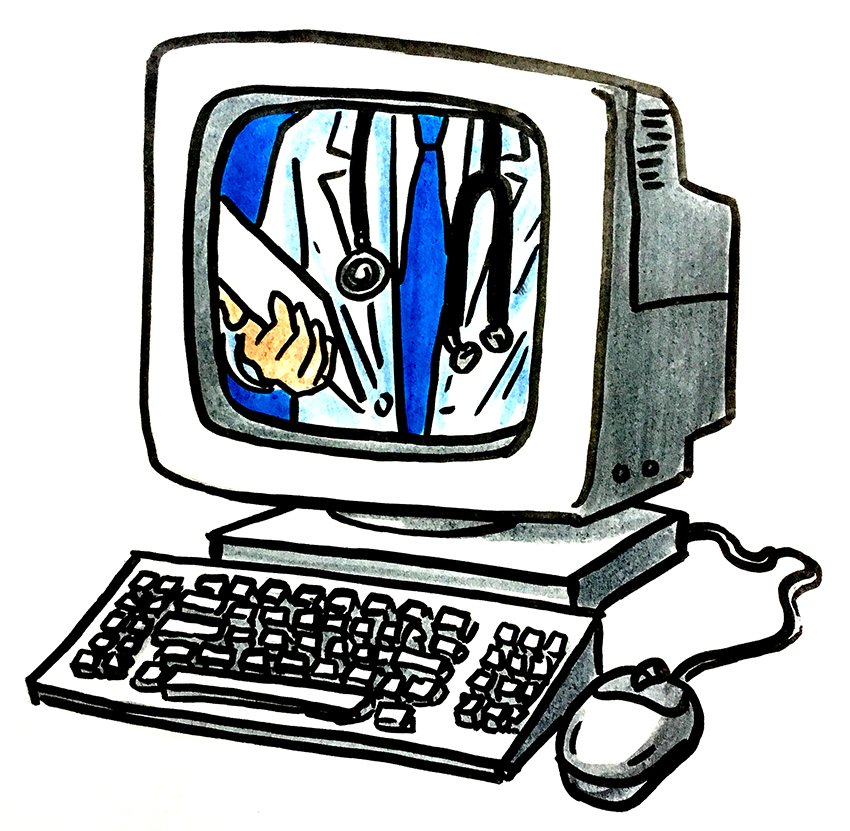As new focus turns toward Dell Medical School and its associated hospital network, Austin has become a burgeoning biotech hotspot. As part of this boom, many startups have dedicated themselves to bringing the world a universal electronic medical records, or UEMR, system. The creation of such a system would promise shorter ER wait times, more comprehensive patient history and medical details and more efficient insurance billing.
But before the UEMR system could encompass an area as large as a state or country, one must consider if such systems have been successful on a smaller scale and particularly if it could benefit the Austin area.
San Francisco, another technological hub, has begun its switch to UEMR. The system eliminates the clerical burden of sending records to specialists across the metropolitan area and redundant billing, saving money for both clinics and patients. More importantly, it makes doctors’ jobs more efficient. In larger hospital systems, or clinical networks, emergency care clinicians can easily access patient history and information, sometimes even before the patient is on the premises. Doctors who are privy to allergies or underlying conditions in a critical care patient can treat them more effectively and mitigate the chance for a complication.
The benefits of such a system seem obvious, but the difficulties in implementation of such a system are far more meticulous. For example, in San Francisco, the switch to UEMR was championed by private companies who took on clients individually, adding each hospital or clinic to its network. Of course, there were multiple companies who went about acquiring business in this way, and this resulted in San Francisco being split by various EMR systems that were unable to communicate with one another. In the rush to implement the UEMR system for the city, companies lost track of the most important part of the acronym: universal.
IT companies are out of touch with the reality of health care. They should collaborate with doctors like Dr. Charles Sninsky who can foresee roadblocks to UEMR implementation.
“Without a unified system, each provider, whether they be a hospital, an HMO system or a private practice, will have their own solution and the end result will be similar to the current problem: incompatibility of systems and the inability to share information,” Sninsky predicted in the medical journal Gastronterology and Hepatology.
Implementation alone is not the largest cost. Maintaining the server system and controlling the database require recurring IT costs that must be either footed by the health care system or unloaded on to the patient, offsetting the potentially money-saving benefits of the UEMR system.
However, even with the knowledge of these potential pitfalls, Austin would make an excellent candidate for a local UEMR system. Austin is the main medical hub for the Central Texas area and is serviced by a few large hospital networks. A coalition of these hospitals would have the power to push for the implementation of such a system perhaps in tandem with the city or Travis County Health and Human Services. Contracting IT companies for this service could be done quite easily. Experts like Sninsky conclude that such UEMR implementation would require government involvement to fund and regulate its inception.
A nurse from Dell Children’s Hospital Blood and Cancer Center, who preferred to remain anonymous, affirms that UEMR would be invaluable in places like the ER. Even in a clinic, it can be difficult to record all the different specialists and tests a patient has gone through before arriving at Dell. “How we treat our patients heavily depends on a thorough patient history,” the nurse said. “I’m not sure what something like this would cost, but if it helps the patient, I believe it’s worth it.”
Batlanki is a neuroscience sophomore from Flower Mound. Follow him on Twitter @RohanBatlanki.





















